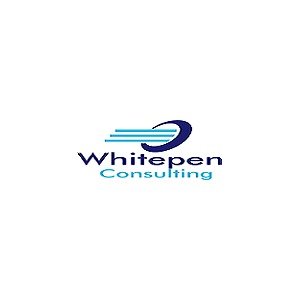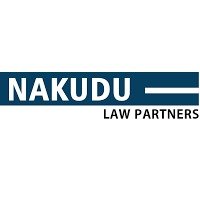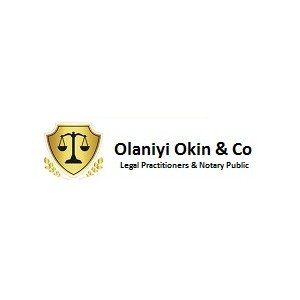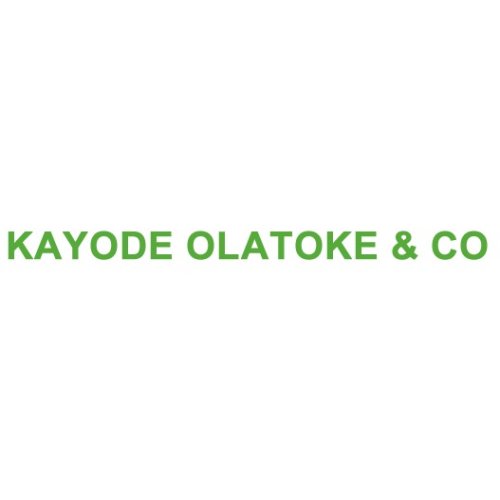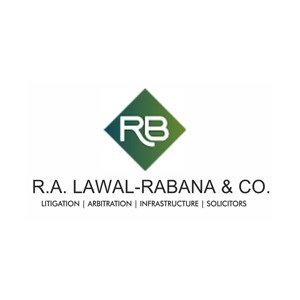Best Project Finance Lawyers in Nigeria
Share your needs with us, get contacted by law firms.
Free. Takes 2 min.
Or refine your search by selecting a city:
List of the best lawyers in Nigeria
Legal guides written by Adeola Oyinlade & Co:
- Procedure and Requirements for Work Permit and Visas in Nigeria
- The Step-By-Step Procedure of How to Apply for Microfinance Bank License Online in Nigeria
- How to Ensure the Smooth Recognition and Enforcement of Foreign Judgments in Nigeria
About Project Finance Law in Nigeria
Project finance in Nigeria involves the structured funding of long-term infrastructure and industrial projects using a non-recourse or limited recourse financial structure. The repayment of loans is typically sourced from the project's cash flow, while assets, rights, and interests serve as collateral. This method is prominently used in sectors such as power, oil and gas, transportation, telecommunication, and real estate. Nigeria's rapidly growing economy and infrastructure needs have increased the importance of project finance as a vital mechanism for sustainable development, attracting both local and international investors.
Why You May Need a Lawyer
Legal guidance is crucial in project finance transactions due to their complexity and the high value typically involved. Common reasons you may need a project finance lawyer in Nigeria include:
- Structuring or negotiating large infrastructure agreements - Conducting due diligence on regulatory compliance and project viability - Drafting and reviewing multifaceted finance, construction, concession, and joint venture agreements - Navigating government permits, land acquisition, and environmental regulations - Resolving disputes or claims arising during project execution - Advising on risk allocation and mitigation strategies - Ensuring compliance with Nigerian and international law, especially where cross-border financing is involved - Assisting with securities, guarantees, insurance, and lender protections
Local Laws Overview
Project finance in Nigeria is shaped by a framework of local statutes, sector regulations, and contract law principles. Some of the most important legal considerations include:
- Companies and Allied Matters Act (CAMA): Governs company formation, registration, and operations for project participants - Securities and Exchange Commission (SEC) Rules: Where projects involve capital market instruments - Land Use Act: Regulates ownership and use of land, crucial for project sites - Pension Reform Act: Relevant to use of pension funds for long-term infrastructure financing - Industrial, Energy, and Utilities Sector Laws: Such as the Electric Power Sector Reform Act, Oil Pipelines Act, and Nigerian Oil and Gas Industry Content Development Act - Foreign Exchange Controls: Involves rules from the Central Bank of Nigeria for repatriation of funds and foreign investments - Environmental Impact Assessment Act: Mandatory for most infrastructure projects - Public-Private Partnership (PPP) Regulations: Projects involving government agencies are guided by framework from the Infrastructure Concession Regulatory Commission (ICRC)
Frequently Asked Questions
What is project finance?
Project finance is a method of funding in which lenders provide money for a specific project, with repayment based primarily on that project's cash flow and assets, rather than the general assets or creditworthiness of the project sponsors.
What types of projects typically use project finance in Nigeria?
Common examples include power plants, roads, bridges, ports, oil and gas developments, mining operations, telecom infrastructure, and large-scale real estate.
Can foreign investors participate in project finance in Nigeria?
Yes, foreign investors are allowed and often participate in project finance, subject to compliance with laws on foreign investment, exchange control regulations, and sector-specific restrictions.
What are key risks in project finance transactions?
Risks include regulatory changes, land acquisition challenges, construction delays, political instability, currency volatility, and possible defaults by project participants.
How does the government encourage project finance?
The Nigerian government encourages project finance through PPP frameworks, regulatory reforms, tax incentives, guarantees, and policies to attract both local and foreign investors.
Are there environmental requirements for project finance projects?
Yes, most large-scale projects require environmental impact assessments and ongoing compliance with environmental regulations to obtain necessary permits.
What role do lawyers play in project finance?
Lawyers help structure transactions, draft and review contracts, ensure regulatory compliance, secure necessary approvals, negotiate terms, and resolve disputes.
What security can lenders rely on in Nigerian project finance?
Lenders can take security over project assets, shares in project companies, assignment of rights under key contracts, accounts, and other collateral arrangements.
What is a concession agreement?
A concession agreement is a contract where a government authority grants a private entity the right to build, operate, and sometimes transfer a project for a defined period under specific terms.
How long does it take to close a project finance transaction?
Timelines vary, but complex projects involving multiple stakeholders and government approvals can take several months or even longer to reach financial close.
Additional Resources
For more information on project finance laws and processes in Nigeria, you may consider these resources and regulatory bodies:
- Infrastructure Concession Regulatory Commission (ICRC): Oversees PPPs and infrastructure concessions - Securities and Exchange Commission (SEC): Regulates capital markets and project-related securities - Central Bank of Nigeria (CBN): Issues rules on foreign investments and banking requirements - Nigerian Investment Promotion Commission (NIPC): Supports foreign and local investments - Nigerian Electricity Regulatory Commission (NERC): Regulates power sector projects - Federal Ministry of Environment: Handles environmental approvals and assessments - Federal Ministry of Finance: Oversees public finance and guarantees for major projects - Association of Consulting Engineers Nigeria (ACEN) and relevant professional bodies
Next Steps
If you are considering a project finance transaction in Nigeria, it is wise to consult a lawyer experienced in Nigerian project finance law as early as possible. Here are suggested next steps:
- Identify and assess the project's sector, regulatory requirements, and potential risks - Engage a qualified project finance lawyer or legal team with knowledge of local laws and international investment requirements - Prepare the necessary documentation and conduct due diligence - Consult key regulatory authorities relevant to your sector - Structure the financing arrangements, including risk allocation and security measures - Proceed with negotiations, documentation, and regulatory compliance - Remain proactive in dispute prevention and seek professional advice as issues arise
Legal advice is critical to ensure your project is compliant, secure, and commercially viable in Nigeria's complex business environment.
Lawzana helps you find the best lawyers and law firms in Nigeria through a curated and pre-screened list of qualified legal professionals. Our platform offers rankings and detailed profiles of attorneys and law firms, allowing you to compare based on practice areas, including Project Finance, experience, and client feedback.
Each profile includes a description of the firm's areas of practice, client reviews, team members and partners, year of establishment, spoken languages, office locations, contact information, social media presence, and any published articles or resources. Most firms on our platform speak English and are experienced in both local and international legal matters.
Get a quote from top-rated law firms in Nigeria — quickly, securely, and without unnecessary hassle.
Disclaimer:
The information provided on this page is for general informational purposes only and does not constitute legal advice. While we strive to ensure the accuracy and relevance of the content, legal information may change over time, and interpretations of the law can vary. You should always consult with a qualified legal professional for advice specific to your situation.
We disclaim all liability for actions taken or not taken based on the content of this page. If you believe any information is incorrect or outdated, please contact us, and we will review and update it where appropriate.
Browse project finance law firms by city in Nigeria
Refine your search by selecting a city.







